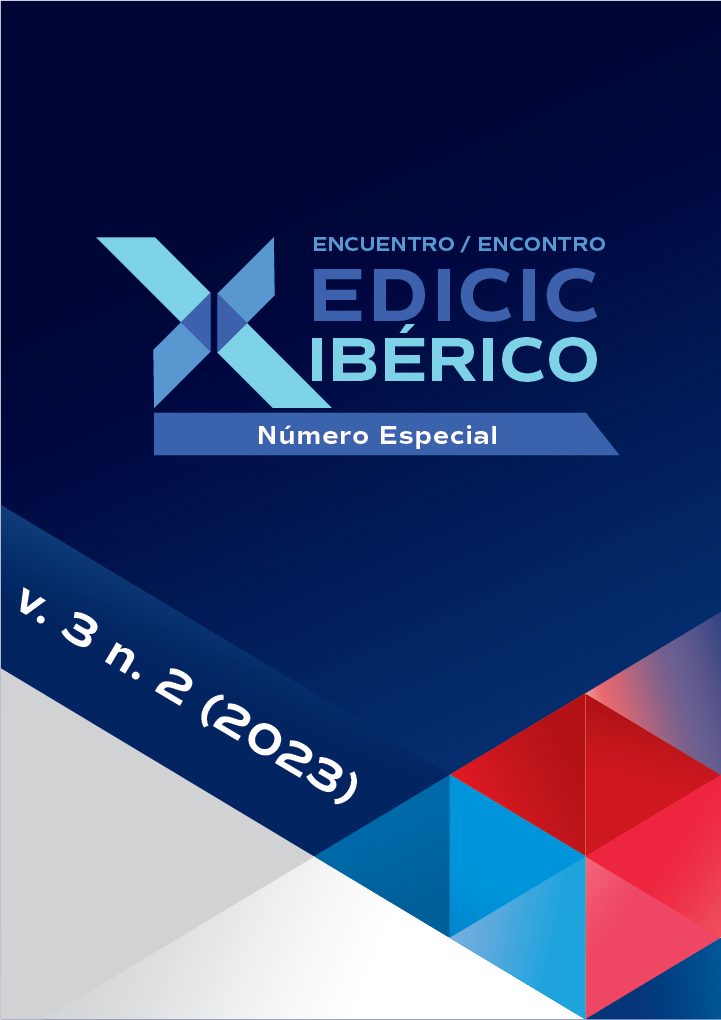Guidelines for preparing a policy for the acquisition and incorporation of private digital archives
DOI:
https://doi.org/10.62758/re.v3i2.217Keywords:
Acquisition and Incorporation Policy, Private Archives, Permanent ArchivesAbstract
Acquisition of documents is one of the activities carried out by archival institutions as part of the collection formation process. This activity, also called extraordinary incorporation - which takes place outside the document management process - develops from the donation, purchase, estate, exchange, loan, etc., of documentary collections from different sources. To assist in the performance of this activity, archival institutions seek to establish a Policy for the Acquisition and Incorporation of private archives. This, in turn, will establish evaluation methods and work protocols so that acquisitions and incorporations occur in line with the institution's objectives, and so that there are no future problems, to the detriment of the private origin of the documentation. However, the evolution of technologies and the insertion of the digital environment in the archival field creates the need to rethink archival policies for collections of private origin, in order to include digital documents. In this sense, this research aims to reflect on the processes of acquiring private digital files, taking into account the specific needs of native digital collections and proposed a guideline that guides the development of Acquisition Policies for the Incorporation of Digital Private Files. When we talk about digital files, we are talking about documents that were created in digital environments - that is, born digital - and remained digital throughout their existence. The technical recommendations for preserving the authenticity and context of production and organicity of these collections is that they be kept in the same chain of custody from their production until the end of their useful life, that is, these documents need to be kept in the same management system. Therefore, the transfer of these documents to another institution, and consequently to another chain of custody, may cause irreversible losses to such files. To develop this research, we defined the Multiple Case Study as the method to be used, due to its ability to explore contemporary phenomena. In this sense, the development of the research was divided into four stages: (1) Planning the case study; (2) Bibliographic Survey; (3) Case Study data collection; (4) Analysis of collected data. It appears that research aimed at dealing with the problem of digital documents in a permanent phase is still very incipient. In addition to the issues that are normally part of the necessary scope for developing a Private Archives Acquisition and Incorporation Policy, it is now necessary to incorporate typical specificities of digital collections. However, for this policy to be developed and applied efficiently within archival institutions, it is necessary to previously establish other policies, such as, for example, the digital preservation policy, which will need to be in line with the acquisition and incorporation policy. This study is still in its initial phase, and therefore will be further developed.
References
Camargo, A. M. & Goulart, S. (2015). Centros de Memória: uma proposta de definição. SP: Edições SESC São Paulo.
Conselho Nacional de Arquivos. (2012). Resolução n. 37. Diretrizes para a presunção de autenticidade de documentos arquivísticos digitais. Rio de Janeiro: Arquivo Nacional.
Conselho Nacional de Arquivos. (2004). Carta para a preservação do patrimônio arquivístico digital. Rio de Janeiro: Arquivo Nacional.
Gomes, A. de C. (1998). Nas Malhas do Feitiço: o Historiador e os Encantos dos Arquivos Privados. Revista Estudos históricos, 11(21).
Instituto Brasileiro de Informação em Ciência e Tecnologia. (2022). Cariniana. https://cariniana.ibict.br/
International research on permanent authentic records in electronic systems (interpares 2 project). (2002-2007). Diretrizes do preservador. A preservação de documentos arquivísticos digitais: diretrizes para organizações. TEAM Brasil. Tradução: Arquivo Nacional e Câmara Deputados.
Lopes, A. S. P. & Flores, D. (2016). Patrimônio documental: a preservação digital em longo prazo. Acervo - Revista do Arquivo Nacional, 1(29), 178-188, 2016. http://hdl.handle.net/20.500.11959/brapci/45046
Oliveira, I. C. B. (2014). Arquivo pessoal: a representação e as escolhas de um passado. Arquivo & Administração, 1-3(13). http://hdl.handle.net/20.500.11959/brapci/49981.
Rocha, C. L. & Rondinelli, R. C. (2016). Gestão e preservação de documentos arquivísticos digitais: revisitando alguns dos conceitos que as precedem. Acervo - Revista do Arquivo Nacional, 2(29), 61-73. http://hdl.handle.net/20.500.11959/brapci/41722
Santos, H. M. D. & Flores, D. (2016).O documento arquivístico digital enquanto fonte de pesquisa. Perspectivas em Ciência da Informação, 21(4), pp. 121-137. http://hdl.handle.net/20.500.11959/brapci/36115 DOI: https://doi.org/10.1590/1981-5344/2688
Silva, W. & Flores, D. (2018). A diplomática contemporânea: reflexões sobre sua aplicabilidade na era digital. Informação & Informação, 23(1), 351-370. DOI: 10.5433/1981-8920.2018v23n1p351 DOI: https://doi.org/10.5433/1981-8920.2018v23n1p351
Silva, F. M. O. E. & Siebra, S. A. (2019). Desmaterializando o documento: contribuições da diplomática para a curadoria digital de documentos arquivísticos digitais. Archeion Online, 6(2). DOI: 10.22478/ufpb.2318-6186.2019v6n2.46345 DOI: https://doi.org/10.22478/ufpb.2318-6186.2019v6n2.46345
Troitiño, S. (2017). De interesse público: política de aquisição de acervos como instrumento de preservação de documentos. Revista do Arquivo, (4).
Yin, R. K. (2010). Estudo de Caso: Planejamento e Método. 4 ed. Porto Alegre: Bookman.
Downloads
Published
How to Cite
Issue
Section
License
Copyright (c) 2023 Revista EDICIC

This work is licensed under a Creative Commons Attribution 4.0 International License.
The Association holds the copyright of the texts it publishes and, therefore, adopts a Creative Commons License, CC BY 4.0 DEED Attribution 4.0 International (https://creativecommons.org/
You are free to:
- Share: copy and redistribute the material in any medium or format for any purpose, even commercially.
- Adapt: remix, transform, and build upon the material for any purpose, even commercially.






